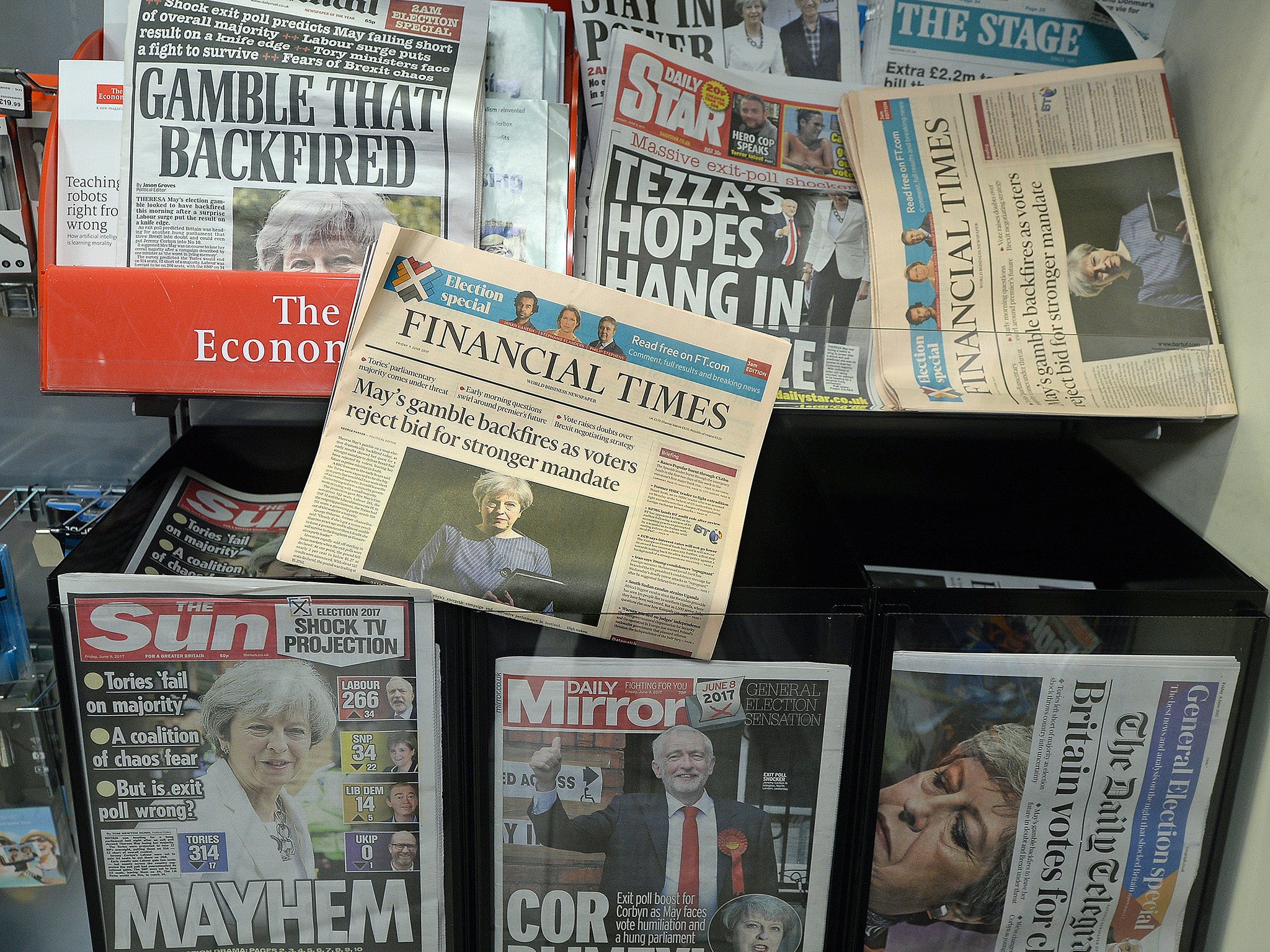What influence will the media have over Brexit in the next year?
By holding the Brexit negotiations genuinely up to the microscope, journalists should not only be holding ministers to account, but also empowering the public to question the kind of deal we are likely to end up with


Your support helps us to tell the story
From reproductive rights to climate change to Big Tech, The Independent is on the ground when the story is developing. Whether it's investigating the financials of Elon Musk's pro-Trump PAC or producing our latest documentary, 'The A Word', which shines a light on the American women fighting for reproductive rights, we know how important it is to parse out the facts from the messaging.
At such a critical moment in US history, we need reporters on the ground. Your donation allows us to keep sending journalists to speak to both sides of the story.
The Independent is trusted by Americans across the entire political spectrum. And unlike many other quality news outlets, we choose not to lock Americans out of our reporting and analysis with paywalls. We believe quality journalism should be available to everyone, paid for by those who can afford it.
Your support makes all the difference.In just over a year from now we will be out of the EU.
No more Brussels bureaucrats telling us to straighten our bananas. No more burgundy passports. No more of our pounds propping up the eurozone.
Never mind that we all might end up poorer. It will be a victory for British sovereignty, for democracy and for the right-wing press.
Probably.
There are some who voted to stay inside the EU (“Remoaners”, if you like) who argue that the referendum was won and lost as a result of lies told by Leave campaigners – especially ones plastered on buses. In this account, Brexit-supporting newspapers are guilty of having perpetuated the anti-EU myths and thus having swung the vote.
I am still not convinced that the media played a major role in the outcome of the referendum, except insofar as they confirmed the existing prejudices of their readers. True, journalists should have done more to scrutinise some of the stats and promises being thrown around: but ultimately, newspapers went with the views of their readers as much as the other way around.
There is a slightly separate question about whether years of negative (and in some cases misleading) press reports about the European Union created the conditions in which the referendum was called in the first place.
But when it came to the 2016 vote, only The Mail on Sunday among the national papers caused any hint of surprise when it came out in favour of maintaining EU membership.
What we are starting to understand now is the extent to which social media replaced the mainstream as a means by which to target potential support. The ability of political campaigns to go directly to voters, without any sort of journalistic filter (friendly or unfriendly) may have changed the game, and not for the better.
Brexit, Donald Trump’s presidency and who knows what else almost certainly owe much more to Facebook and to professional masters of analytics than to even the most one-sided of editorials or TV commentaries.
Now though, the mainstream is fighting back.
On the one hand, work by journalists has shone a light into the darker recesses of the world inhabited by the likes of Cambridge Analytica. That has also put pressure on Facebook, which is already being challenged on the way it presents news – real and fake – to users.
But there is more, at least in the context of Brexit.
Arguably, the power of the press resides most clearly (and always has) in the minds of politicians, whose horizons rarely extend beyond the possible outcomes of the next election. With the Government sitting uncomfortably on a slender majority, thanks only to the support of the DUP, that perception among MPs that a media furore could bring Theresa May crashing to earth is magnified.
With the majority of the press rooting for a hard Brexit, that could put the Brexiteers in government in a strong position.
It is only necessary to consider the extraordinary reaction in some quarters to the provisional decision to give the contract for making Britain’s post-Brexit passports to a French firm to see how things could play out if negotiations take a turn that isn’t to the liking of the Daily Mail.
Nevertheless, the question marks over the role of Facebook et al; and over dubious, micro-targeted messaging; and the use of bots; and the possible involvement of Russian or other, foreign actors in swaying public opinion, might finally, perhaps, reminded us that there is a great deal more shadowy nonsense in unregulated, unedited online arenas than there is in any newspaper, or any mainstream news site, or any TV news channel.
This gives an opportunity to traditional news publishers to demonstrate to audiences that good journalism is based on expertise and trust, not sensation and hyperbole.
By holding the Brexit negotiations genuinely up to the microscope, journalists should not only be holding ministers to account, but also empowering the public to question the kind of deal we are likely to end up with. In this way, the media could influence the UK’s presumed departure in a way that was honest and, therefore, positive – whatever the actual outcome.
The mainstream media – for so long a key feature of every anti-establishment conspiracy – has a choice: remind people why it can be trusted ahead of Facebook, Cambridge Analytica, Russian trolls and fake news; or screech.
It must, for the sake of the UK’s future, and for the sake of the relationship between news producers and consumer, choose wisely.
Join our commenting forum
Join thought-provoking conversations, follow other Independent readers and see their replies
Comments